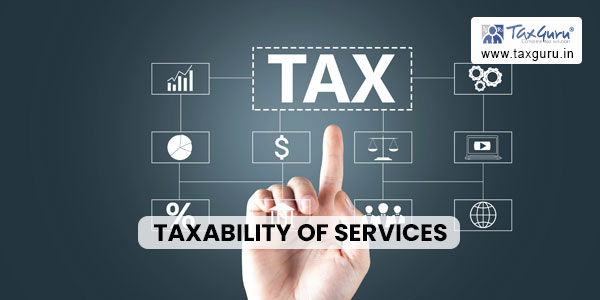Taxability of services between distinct persons: What is the way forward: ISD or cross charge?
The taxability of the services between distinct persons under the GST framework was uncertain and subject to debate or discussion. This ambiguity might have led to different interpretations or viewpoints regarding how these services should be taxed. As part of the 50Th GST Council Meeting which was held recently, it was recommended to clarify through a circular various scenarios with respect to issues that may arise with regard to the taxability of services between distinct persons to ensure uniformity in the implementation of the law.
And in this regard, Circular No. 199/11/2023-GST dated the 17th of July 2023 is provided in the best interest of the taxpayers.
The circular highlights the two categories of services such as common input services procured from a third party and other internally generated services wherein the head office provides some services on their own to branch offices.

It is clarified that in respect of common input services procured by the head office from a third party but attributable to both Head office and Branch offices or exclusively to one or more Branch offices, the Head office has an option to distribute ITC in respect of such common input services by following ISD mechanism laid down in Section 20 of CGST Act read with rule 39 of the Central Goods and Services Tax Rules, 2017. However, as per the present provisions of the CGST Act and CGST Rules, it is not mandatory for the Head office to distribute such input tax credit by ISD mechanism. Head office can also issue tax invoices under section 31 of CGST Act, 2017 to the concerned Branch office in respect of common input services procured from a third party by Head office but attributable to the said Branch office and avail ITC on the same subject to the provisions of section 16 and 17 of CGST Act.
Further, such distribution of the ITC in respect a common input services procured from a third party can be made by the Head office to a Branch office through ISD mechanism only if the said input services are attributable to the said Branch office or have actually been provided to the said Branch office.
Similarly, the Head office can issue tax invoices under section 31 of CGST Act to the concerned Branch office, in respect of any input services, procured by Head office from a third party for on or behalf of a Branch office, only if the said services have actually been provided to the concerned Branch office.
The value of supply of services made by a registered person to a distinct person in respect of internally generated services, needs to be determined as per rule 28 of CGST Rules, read with sub-section (4) of section 15 of CGST Act. As per clause (a) of rule 28, the value of supply of goods or services or both between distinct persons shall be the open market value of such supply.
In respect of internally generated services provided by the Head office to Branch offices, the cost of salary of employees of the Head office, involved in providing the said services to the Branch offices, is not mandatorily required to be included while computing the taxable value of the supply of such services, whether full input tax credit is available or not to the concerned Branch office.
It was observed that the circular clarifies that the ISD mechanism is not mandatory for distribution of ITC of common input services procured from third parties to distinct person and also clarifies on issues with respect to internally generated services. However, it was recommended by the Council that the amendment in the GST law will be incorporated to make ISD mechanism mandatory prospectively for the distribution of ITC of common input services procured from third parties.
Key takeaways:
- In case of services procured from a third-party head office has the option to distribute ITC in respect of common input services by following the ISD mechanism or cross charge mechanism.
- ITC can be distributed only if input services are attributable to the concerned branch office or input services have actually been provided to the concerned branch office
- For the ISD mechanism Head office shall take GST registration as an Input service distributor
- In the case of internally generated services, the value declared on the invoice shall be considered as open market value or nil value if no invoice is raised, whether the recipient is either eligible for full ITC or not
- There is a probability of the ISD mechanism being made mandatory in the future.
Conclusion: Circular No. 199/11/2023-GST dated the 17th of July 2023 provides clarity on taxability of services between distinct persons. Businesses can now make informed decisions on utilizing either the ISD mechanism or cross charge approach for distributing ITC. Understanding the potential future changes is also crucial for GST compliance and planning.




